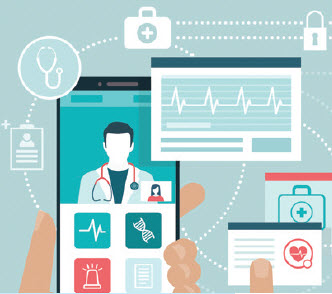Artificial Intelligence in Healthcare Surge of Investment Fuels Expectations
[glossary_exclude]One of the most remarkable tech advances to come out of the current digital revolution has been the practical use of artificial intelligence (AI). From robotics to machine learning, and across all business sectors, AI is not your grandfather’s Ultron. It is automation through a type of intelligent reasoning that utilizes electronic data at a scale that the human brain cannot. In the healthcare industry, the source and production of this data has outpaced human comprehension. This is particularly true with the emerging wearable technology sector and the ubiquitous use of data obtained through the Internet of Things (IoT). Healthcare organizations looking to leverage their existing data assets for AI will need to develop governance, infrastructure, and technology partnerships to guide their efforts.
Investment in healthcare-related AI is “expected to reach $6.6 billion by 2021,” resulting “in annual savings of $150 billion by 2026.” (1) Organizations that participate in this growth will conceptually utilize an IG infrastructure leveraged with state-of-the-art technology infrastructure. Such a partnership helps AI do what humans cannot do, i.e. structuring massive sets of big data. Facilitating these partnerships requires cooperation and close support for the end user in a near-symbiotic relationship to ensure regulatory concerns about information sharing are adequately addressed. Because of the risk of the lack of human control, the relationship must be never be severed.
The symbiotic relationship has three components: a conceptual IG framework, a partnership with a technology company, and training needed to combine the two. Reddy, Fox, & Purohit terms healthcare delivery systems that are AI-enabled are used for “patient administration, clinical decision support, patient monitoring, and healthcare interventions.” (2) The effectiveness of AI in healthcare centers around the timely delivery of interventions, improved diagnostic accuracy, and the reduction of medical errors.[/glossary_exclude]
recent posts
You may already have a formal Data Governance program in [...]

